Coheed And Cambria talk The Color Before The Sun and losing the concept
Travis and Claudio on the guitars and history behind album eight
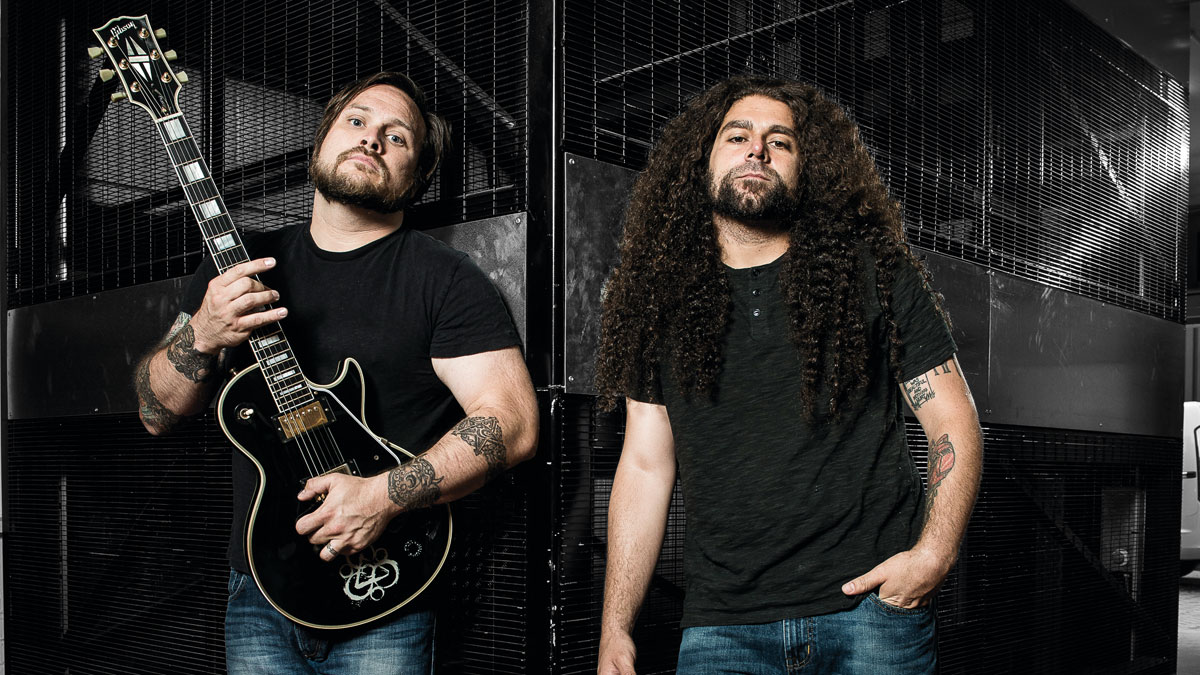
Introduction
For the first time in the 20 years since they formed, Coheed And Cambria have written an album from a most unusual perspective: their own. We find out just why the US rockers decided to reinvent themselves for album number eight…
Gone were the science fictions of heroes and villains in distant galaxies - it was time to make the most honest record of their career
Coheed And Cambria’s conceptual narratives - and their accompanying graphic novel series The Amory Wars - have become almost as synonymous as the musical meanderings laced into the modern prog champions’ chart-bothering anthems.
For many fans then, it came as a great surprise when the New Yorkers announced eighth album, The Color Before The Sun, would be the first to explore their own personal revelations. Gone were the science fictions of heroes and villains in distant galaxies - it was time to make the most honest record of their career.
Guitarist/singer Claudio Sanchez and fellow axeman Travis Stever explain how even the unorthodox working practices can start to feel somewhat predictable as the years go by…
Don't Miss
Coheed And Cambria's Claudio Sanchez talks guitars, concept albums and band harmony
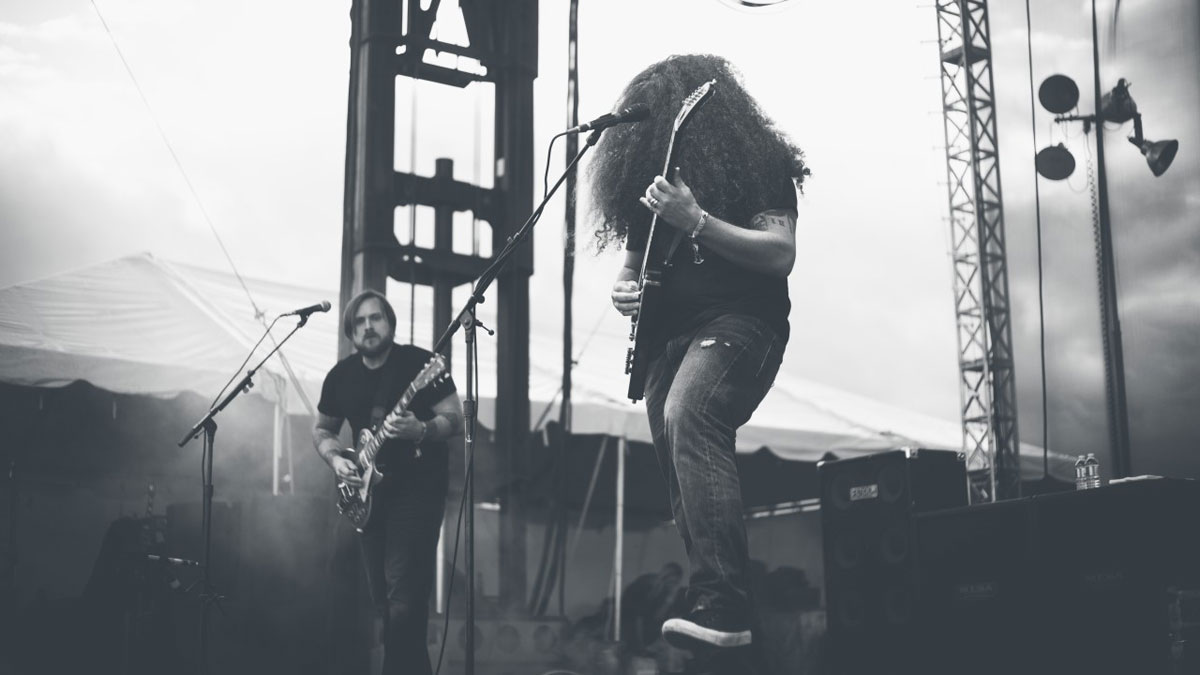
Dark times in the country
When did you realise this album was going to break away from The Amory Wars?
Claudio: “A couple of years ago my wife and I decided we wanted to travel around and discover the world before having children. We went to Paris, which is where the last record’s concept originated from.
“Next we tried LA, just because there’s a lot of comic book stuff out there. After Florida, we tried Brooklyn, New York because I’d never lived actually in the city. But I found it hard to write there. I was used to being secluded, and in Brooklyn I was dead centre in the middle of everything.
We found out while we were away our house had been broken into and turned into a weed farm. It was a $300,000 a month operation
“I had a hard time getting inside the characters in my head. I had an identity crisis, which made me start thinking about what Coheed should be, because it didn’t feel natural to write a concept record.”
How did those frustrations then manifest into the songs on The Color Before The Sun?
Claudio: “While all that was going on, my wife fell pregnant - songs like Ghost and Atlas being the anticipation of fatherhood while understanding I would have to leave my child to go on tour.
“I would get up at 5am and walk around just to think about who I was before we got popular, and the limitations I’ve put on myself because of the Coheed formula. All I wanted to do is get out of the city and into the country where I could find inspiration... which we did.
“Then we found out while we were away our house had been broken into and turned into a weed farm. It was a $300,000 a month operation. We were scared shitless, it was an emotional time. At first I realised it was almost like a solo record, then it just clicked... a new phase of my life, so why not a new phase for the band?”
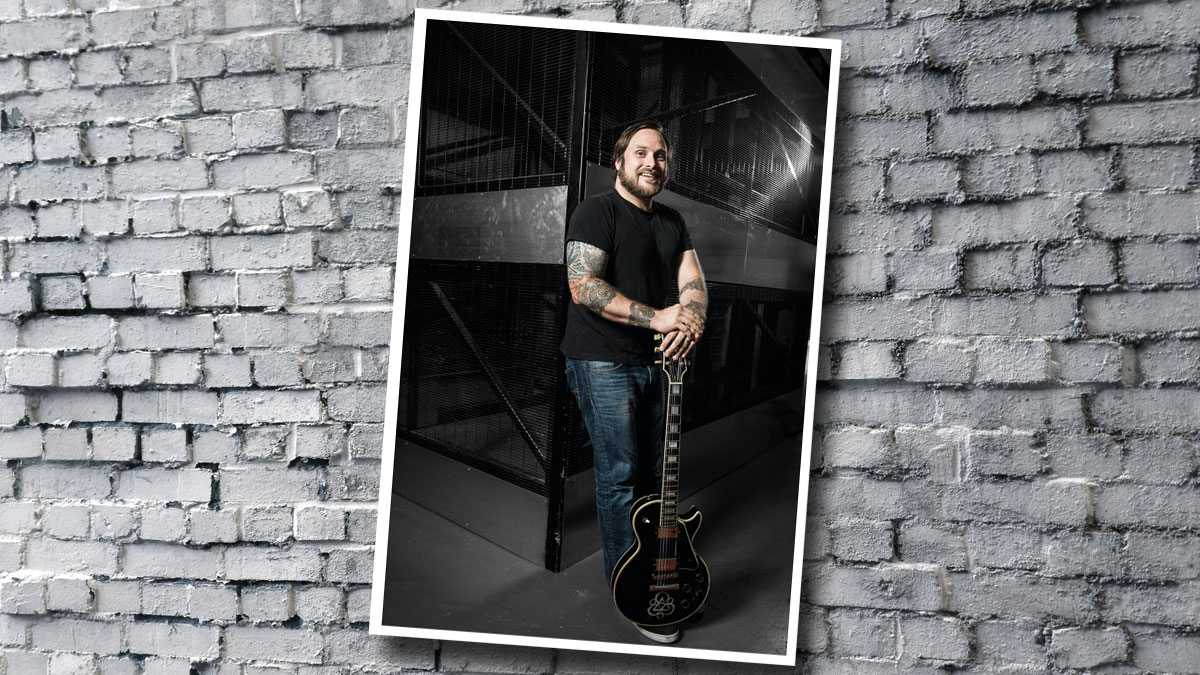
Nashville nights
And Travis, what was it like for you working in this way for the first time?
Travis: “I’ve kinda figured out my own style through playing other people’s songs and building my own melodies and parts. That’s what I do with Claudio’s songs, unless it’s the other way round, which sometimes happens. This record is a perfect example of me coming in on a set idea Claudio had of where he was going.
“I kinda went back to my older role of doing whatever I could to make each song better. Naturally, this record was a lot more personal for him, not that it hasn’t felt personal before. I definitely wanted to play into that.
We cut it live, because it felt more honest, like we’re lifting the veil of concepts and showing more truth this time
“Some songs I stretched out like I always have, adding things, and Claudio loved them. I think the song Atlas almost has more of an original Coheed feel, which is funny because it’s about Claudio’s son!”
You recorded in Nashville with Jay Joyce. What were the main reasons behind this?
Claudio: “We decided on Jay because our A&R suggested him and the idea of going to Nashville just sounded romantic. Everything else had been recorded in New York or LA, so we wanted to see how this could be different.
“We then decided to cut it live, because it felt more honest, like we’re lifting the veil of concepts and showing more truth this time. We wanted the blemishes of a live situation to colour the songs and Jay was a big fan of that idea. I knew we were capable of doing it, we’d just never done it before.
“Usually things are under the microscope and have to be perfect. We wanted it to have character: we cut the music in two weeks and mixed it in two weeks instead of the usual few months.”
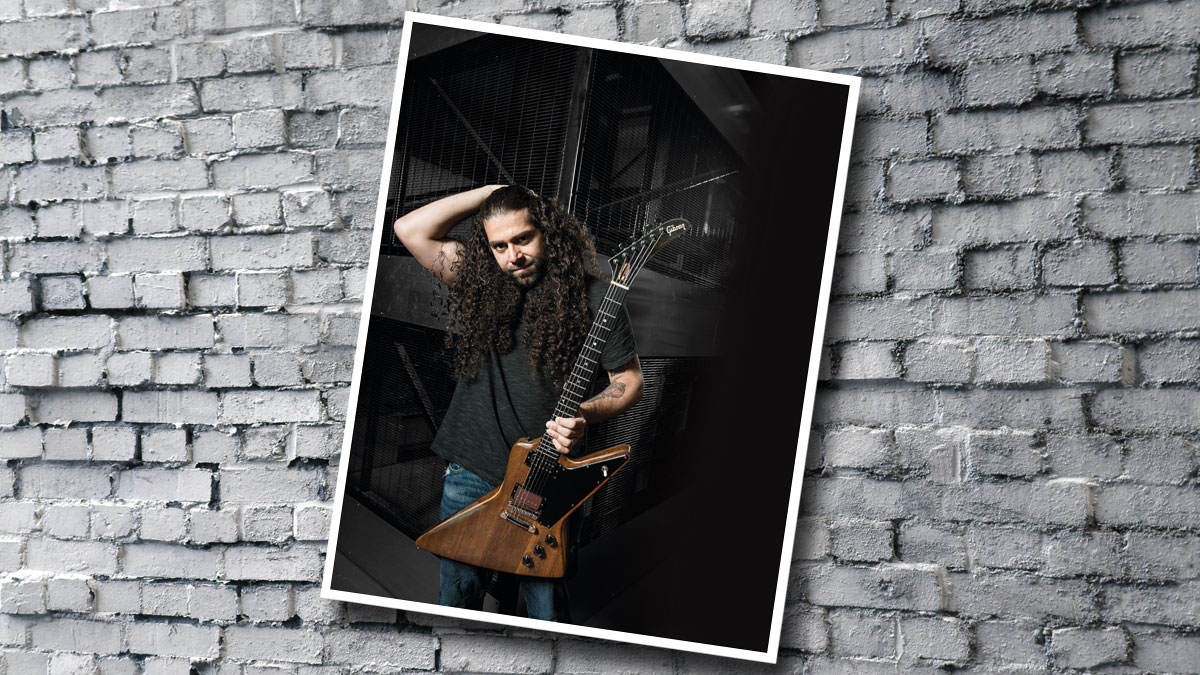
Tone zone
Can you tell us about the main guitars you relied on for the tones heard on the record?
Travis: “I have two primary Gibson Les Pauls that I’ve used on pretty much everything since 2008. Gibson hooked me up with the Black Beauty on artist price and they said I could get another guitar basically free with it. This is back when they were still generous! [laughs]
“There was this Les Paul Traditional, which I fell instantly in love with, plus I’d always wanted a Goldtop. They’re the ones I tour with too - one is in standard and the other half a step down. Now I’m older, I feel like Les Pauls are the right guitar for me.”
I liked the Tele we used so much that I found one in Nashville, a Cherry Sunburst from 1977
Claudio: “I actually cut most of the record using Jay’s 1978 Telecaster Deluxe! It was that and a Gibson Les Paul VOS that I bought in California. I liked the Tele so much that I found one in Nashville, a Cherry Sunburst from 1977, which I knew I’d buy right away. I’m looking forward to bringing it out with my Bare Knuckle-loaded Explorers.”
You both have stuck with Fractal’s Axe-Fx for touring, but in the studio what kind of amps and pedals did you end up using?
Claudio: “I have an Orange OR50 Anniversary that handled most of the tones for me, as well as a Bogner Uberschall I threw into the mix every once in a while. There were quite a lot of fuzz pedals, you can hear a Lastgasp Art Laboratories Super Oscillo Fuzz during the solo section on Eraser, and Death By Audio’s Fuzz War on a few other tracks.”
Travis: “I used a couple of different amps. There was an old Vox that’s on quite a few tracks. They had so much equipment in Jay’s studio, we didn’t have to use our own amps much. They would hook it up and we would play live so it all kinda happened really fast!
“I did use my Mesa/Boogie Mark V on about four songs too. There were loads of pedals lying around, I used a Mad Professor Deep Blue delay on one song. I would dial in a sound and because we were cutting it live and organically, I’d just have to run with it. It was really different to how we’ve worked in the past.”
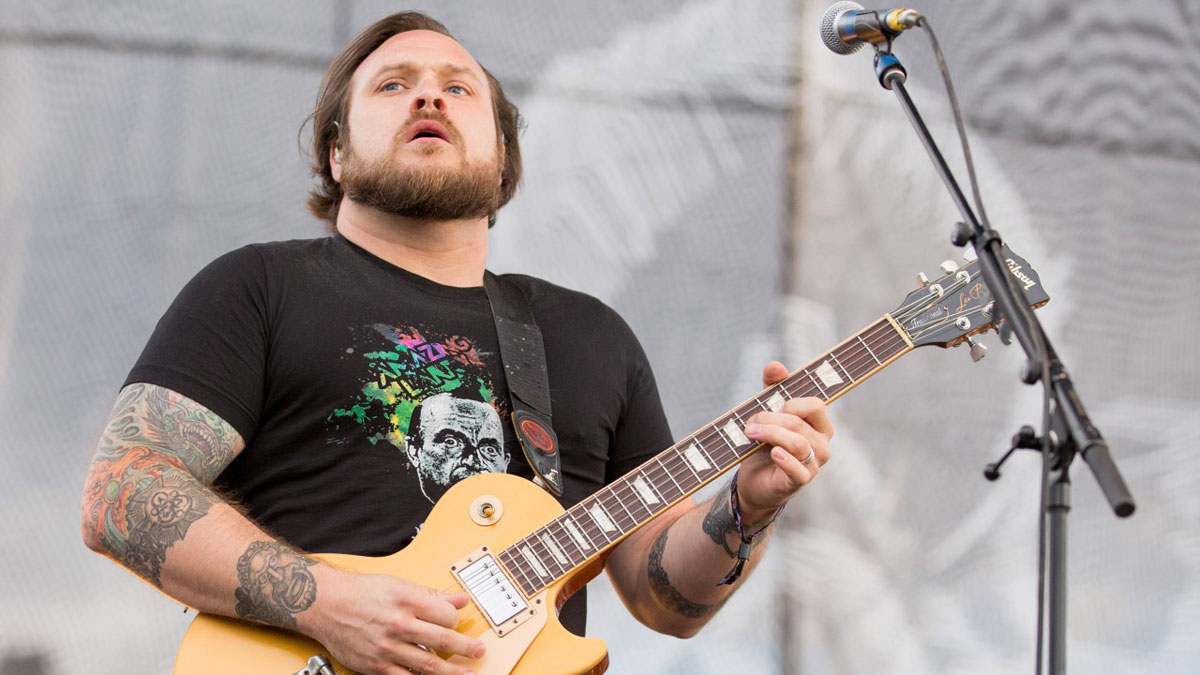
Analogue nostalgia
Would you ever be tempted to go back to analogue on stage?
Claudio: “Oh absolutely. And almost everything we do in the studio is real, we like the idea of air being pushed. Same as on stage, those cabinets are fed a signal. The Axe-Fx just makes life a lot easier when you’re playing abroad.
“It’s predictable, you know what you’re gonna get, it’s small to transport, the front of house guy knows what to dial in on the fly in a festival situation. But I’d love to go back to analogue, and we may yet. I tried some new Mesa/Boogie Electra Dynes just the other day, and I thought those heads sounded great!”
The Axe-Fx works perfectly for us right now, why mess with it?
Travis: “I agree, the Axe-Fx works perfectly for us right now, why mess with it? I can’t say we’ll never go back to analogue. I actually see us doing a combination of both. What would it take? It would take us being able to travel a lot easier: if there’s a much larger demand to see us on tour! [laughs] But right now the best way for us to sound the way we do is using these.
“Nothing can replace using real amps, to a degree. But if you’re gonna get the closest, it’ll be with these. Sometimes if we’re working on ideas, we’ll think it sounds just fine using the Fractal and record it as is. On the last record, there were a few tones that were pure Axe-Fx.”
You’ve been playing together for over two decades now. What do you now feel are your main differences as guitarists?
Claudio: “For me, ignorance is bliss! Because I have absolutely no fucking idea what I’m doing! I was sitting down with Tom Monda from Thank You Scientist, and he’s an incredible guitar player. He understands the instrument inside and out. I don’t even know what the notes are on the scales, except for maybe two. I just let my emotions take over and hope something happens.
“My main thing is synthesis, I feel like sequencing spilled into my guitar playing. The percussive things you hear on Everything Evil or No World For Tomorrow is me trying to emulate a synthesiser. So if you like that arpeggiated kind of thing, listen to more synth players. Pay attention to the bleeps and bloops of Pink Floyd rather than the rock band element.”
Travis: “Playing with other people in order to develop my own style is all I’ve ever done. I’ve come to the conclusion that it’s more of a challenge as a guitar player to bring something new to someone else’s ideas. I know whatever I do is always going to sound different because it’s me playing it.”
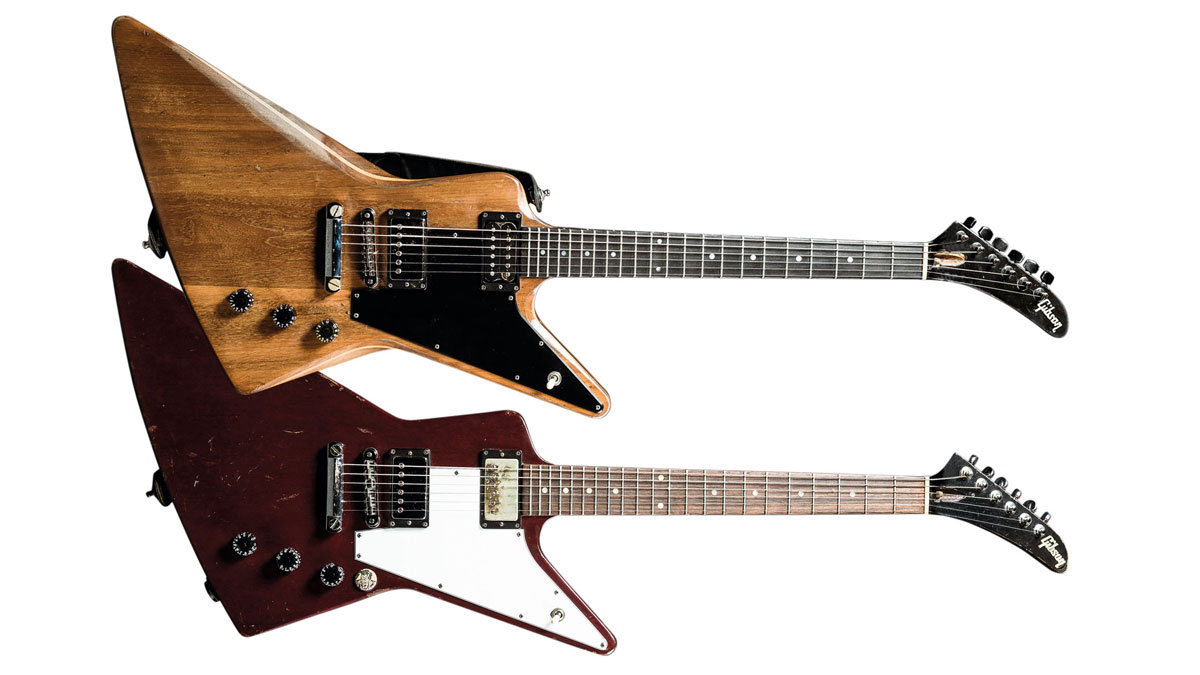
Claudio's Gibson Explorers
Claudio: “Both Explorers feel very good because of their necks and they just work for me on the road. What I really like about Explorers is this sort of shelf [on the upper bout] that happens and it feels like a rest. I’m lazy I guess!”
Gibson Explorer II 1980s
“We put in a [Bare Knuckle] for more high-gain stuff. I picked this up when the band was on the road in Cincinnati at a place called Mike’s Music. It was actually in pretty bad condition and I just kind of fell in love with it. I also have the sister Flying V that sort of matches this guy. This guitar is very reliable.”
Gibson Explorer ’76 Reissue
“We installed [Bare Knuckle] high-gain pickups in this, too. I’m thinking whether I ever used it on a record and I’m not sure I have, but it’s definitely reliable on the road. It’s a workhorse… there’s a ton of dings in it and it just gets pretty manhandled. It’s a great guitar.”
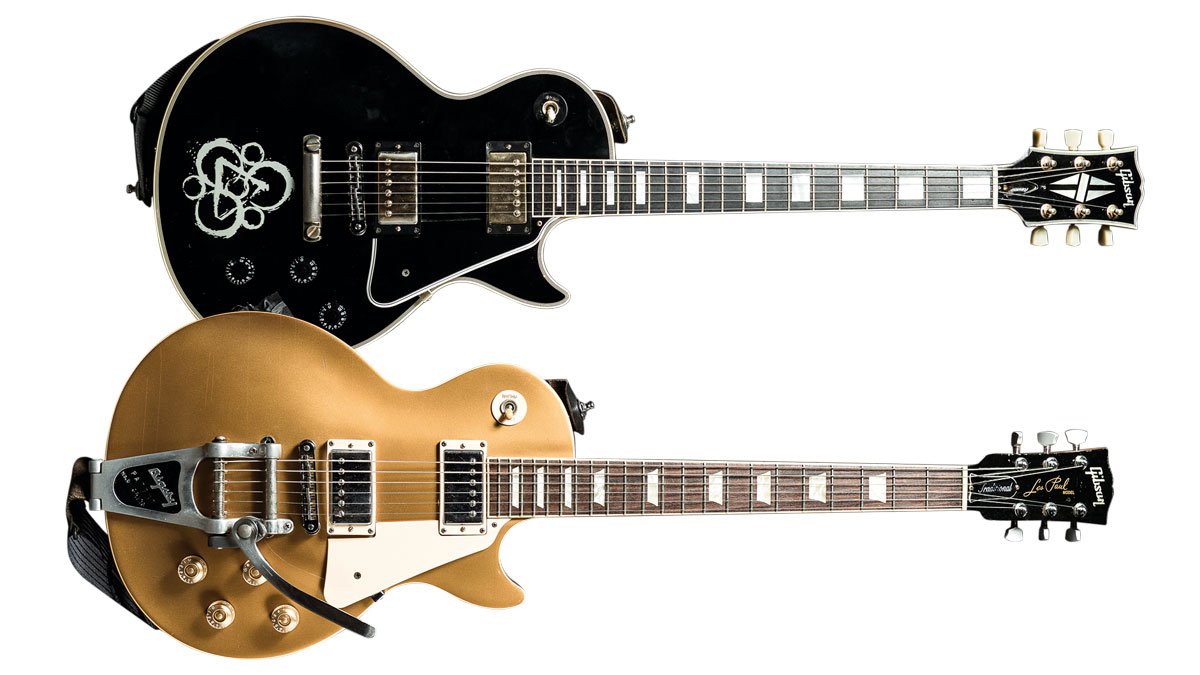
Travis's Gibson Les Pauls
Travis: “These are the primary guitars that I’ve used on pretty much everything lately. I always wanted to play Les Pauls since I was a kid. Now being an older man, I realise that I picked the right guitar.”
Gibson Les Paul Custom
“I ordered this Custom Black Beauty in 2008. I always wanted a Custom Black Beauty and had asked them to do the keywork in the body like that.”
Gibson Les Paul Traditional Goldtop
“I had tried out this Traditional at a Guitar Center and I fell in love with it. Basically, what happened was I was able to get this guitar from Gibson pretty much free [because he bought the other one]. So I was just blown away by that. This has turned into my favourite guitar.
“I’ve played classic Goldtops and this guitar is still my favourite I’ve ever played. I used it on pretty much the whole new album. We did a lot of stuff live and when we did it live, I used this guitar. What I basically do is have this guitar as my standard tuning and [the Custom] is half a step down.”
Don't Miss
Coheed And Cambria's Claudio Sanchez talks guitars, concept albums and band harmony
Amit has been writing for titles like Total Guitar, MusicRadar and Guitar World for over a decade and counts Richie Kotzen, Guthrie Govan and Jeff Beck among his primary influences. He's interviewed everyone from Ozzy Osbourne and Lemmy to Slash and Jimmy Page, and once even traded solos with a member of Slayer on a track released internationally. As a session guitarist, he's played alongside members of Judas Priest and Uriah Heep in London ensemble Metalworks, as well as handling lead guitars for legends like Glen Matlock (Sex Pistols, The Faces) and Stu Hamm (Steve Vai, Joe Satriani, G3).


